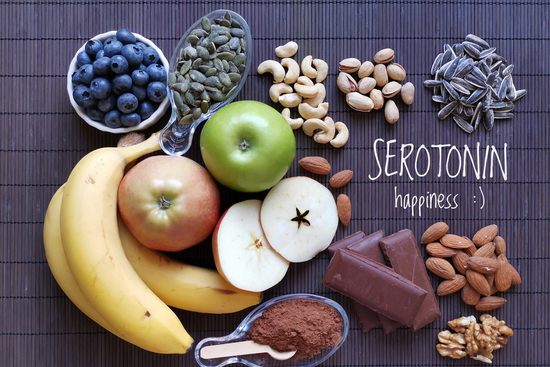The science of happiness
When was the last time you felt wildly happy? What causes happiness like that? And what makes some of us happy almost all the time, while others battle with issues like depression and have a hard time feeling happy? What chemical makes you happy?
It isn’t just one chemical in a certain amount that makes us happy. The science of happiness tells us that neurological chemicals like dopamine and serotonin vary from person to person, causing them to feel more or less happy in life. But does dopamine make you happy? Does serotonin make you happy? The answer is that these are factors in our overall well-being, but they’re not the only thing you need to be happy.
Happiness depends on many things. Your state changes depending on how you react to changes in your career, marriage, personal life and finances. Happiness can also be due in part to giving back to the people and community around you, adopting a growth mindset during challenging times and making progress in life. We are often more in control of our happiness than we may think – we can figure out what causes happiness, then cultivate it through a set of strategies and behaviors that anyone can practice.
What chemical makes you happy?
Human beings are wired to seek pleasure and avoid pain; we look to not only survive in life, but to experience what makes us happy. Our brain chemistry is designed to support these efforts by releasing chemicals into our brain and body that make us feel good. There are numerous neurotransmitters, or substances released by nerve fibers, that affect happiness. Although there are quite a few that make us feel joyful, right now we’ll focus on four: serotonin, dopamine, oxytocin and endorphins.
Serotonin
Serotonin is a neurotransmitter that’s created in the brain as well as in the intestines. Once produced, it’s circulated in the blood and throughout the central nervous system. While there isn’t a single answer to what chemical makes you happy, serotonin is an essential piece of the puzzle. Some scientists even refer to serotonin as the “happiness chemical,” because higher serotonin levels increase feelings of well-being, confidence and belonging.
Humans are social animals, and being around others is what causes happiness for many of us. There’s a scientific reason for that: Serotonin is more free-flowing when you feel important or valued by those around you. When you’re experiencing serotonin happiness, it takes no effort to feel joyful – it just seems to happen naturally.

People who are diagnosed with depression typically have low levels of serotonin available, whereas people with high serotonin often report being happier. People with higher serotonin levels also demonstrate higher levels of self-esteem and have an easier time handling rejection.
Serotonin is also linked to digestion, blood clotting and bone density, and an imbalance can cause both mental and physical problems. Lack of serotonin can cause issues with bowel movements, nausea and sleep patterns. It can even affect your ability to heal wounds by clotting blood. On the other hand, too much serotonin may play a role in osteoporosis and can actually reduce your libido.
So does serotonin make you happy? The short answer is yes – and you don’t have to rely on your natural serotonin levels. Cuddling with your partner, aerobic exercise, getting out in the sunshine, getting a massage and even visualizing something that makes you happy can all increase serotonin levels.
Dopamine

Dopamine is another neurotransmitter made in the brain and distributed through various pathways to affect bodily functions like heart rate, blood vessel and kidney function, nausea, vomiting and even pain. But does dopamine make you happy? In fact, it is perhaps most famous for its role in the science of happiness.
Your body releases dopamine as part of the reward system – after sex or a good meal, or when you’ve reached a goal. That’s why it‘s known as the “reward molecule.” In this way, it plays a role in how quickly and efficiently you get things done. Your body knows that if it achieves an objective, your mind will flood the body with dopamine causing you to feel happy and fulfilled.
This isn’t just true of achieving big goals. Even when you accomplish a small task, your dopamine levels will increase. Dopamine happiness feels invigorating and energizing. People with low levels of dopamine might experience depression or other mood disorders and can have trouble staying on task and remaining focused.
Dopamine is another vital answer to what chemical makes you happy – and like serotonin, you can increase its levels naturally. Exercise plays a part again here, as well as avoiding processed foods, sugar and caffeine. But the best way to keep dopamine levels high? Get a good night’s sleep.
Oxytocin
Have you ever felt like you just needed a hug? That could have been your brain in search of oxytocin. The brain releases this neurotransmitter during physical contact and even when you perform a kind gesture. Oxytocin is crucial to parent-child bonding, childbirth and breastfeeding. As such an important part of the foundations of life, it’s no surprise this hormone continues to affect our happiness well into adulthood.
While dopamine gives us a “hit” of happiness, oxytocin plays a long-term role, providing feelings of calm, safety and trust. It helps us create deep friendships, fall in love and build passionate relationships. When you give a friend a hug, cuddle with your partner or engage in intimacy, oxytocin benefits both you and your partner.

Oxytocin can also help mediate the more addictive qualities of “fast-acting” dopamine, boosts our immune systems, improves problem-solving skills and decreases stress. Studies are ongoing into its effects on topics as diverse as wound healing, addiction and brain injury.
While understanding oxytocin is just one part of knowing what chemical makes you happy, it’s especially important to long-term happiness and fulfillment in life. And according to the science of happiness, increasing your levels of this hormone is as easy as giving someone a hug.
Endorphins

For a clue to the functions of endorphins, look at the origin of the word: “endorphin” is derived from the words “morphine,” a strong pain reliever, and “endogenous,” or made within the body. Endorphins are the body’s natural pain relievers, produced by the pituitary gland and the central nervous system, and they do their job efficiently and effectively.
Endorphins don’t just relieve pain, they also enhance pleasure. They’re part of the reward system along with dopamine and are released during eating, drinking, exercise and intimacy. Ever heard of the runner’s high? That happens because of endorphins. They’re also the reason that exercise has been shown to help reduce depression.
Endorphins strengthen social bonds and help humans thrive in communities. They can improve self-esteem, reduce stress and regulate weight. On the other hand, deficiencies in endorphins can cause impulsive behavior, depression, anxiety and inability to sleep.
The best ways to increase your endorphin levels are exercise and sexual intercourse. Combine exercise with something that makes you happy – like dancing to your favorite song – for an extra boost. Self-care, like massage, aromatherapy or indulging in a bit of dark chocolate, can also increase endorphins. Just beware: Like dopamine, endorphins only cause a short-term “high.”
Cortisol: The enemy of what makes us happy
While there are biological conditions that decrease the levels of these chemicals, they are typically balanced in those who eat nutritious diets, get plenty of exercise and manage their stress levels effectively. However, for those who lead unhealthy lifestyles or let stress take over, a deadly chemical called cortisol can be released and inhibit the chemicals that make us happy.
Cortisol is a hormone made by the body’s adrenal glands. In normal amounts, it reduces inflammation in the body and regulates blood pressure, blood glucose and sleep. It’s also the body’s main stress hormone and is most famous for instigating the “fight-or-flight” response.
When you’re living in a state of constant stress, cortisol becomes elevated. This state not only reduces our happiness, it also negatively impacts memory and focus, can lead to weight gain and can have serious effects on our major organs and immune system.
Does dopamine make you happy? Sure. Serotonin does, too. But you can’t go through life wondering only what chemical makes you happy. You wouldn’t want a brain filled with only the “happy” neurotransmitters and none of the others. Your body needs both. Because in the end, what causes happiness comes down to one word: balance.
Natural strategies for balance in the brain
You might think that because your brain is wired a certain way that there’s nothing you can do about your everyday happiness. After all, some of this is genetic, right? While it’s true that your brain chemistry is affected by your biology, the science of happiness shows that you have the power to change your thoughts. If the following techniques do not work and you are experiencing a depression you can’t shake, seek professional help.
1. Move your body
Get up and move on a daily basis for at least an hour to release endorphins and boost your mood.
2. Practice gratitude
You can also practice gratitude regularly by writing in a journal, meditating on all the good things in your life or finding ways to show appreciation to those close to you.
3. Feed your mind
Make a point to feed your mind with nutritious information like self-help books, interesting biographies or inspirational novels.


4. Use the latest developments
Taking natural supplements and utilizing stress-reducing technology like NuCalm can increase the levels of chemicals that cause happiness.
5. Surround yourself with support
Finally, surrounding yourself with those who are positive and supportive will stimulate the release of “feel good” brain chemicals and help you remain in a peak state.
No one feels happy 100% of the time, but the science of happiness shows us that there are things we can do to boost our mood. Even when you face a challenge, you can find a way to accept and learn from it. By creating close social connections and making progress in life, you have the power to reframe your mindset and create a cycle of happiness. While neurotransmitters certainly affect your state, as Tony Robbins says, “Progress equals happiness.”
Want to create lasting happiness?
Stop worrying about what chemical makes you happy and start living a healthy lifestyle with Tony’s Ultimate Health Guide.